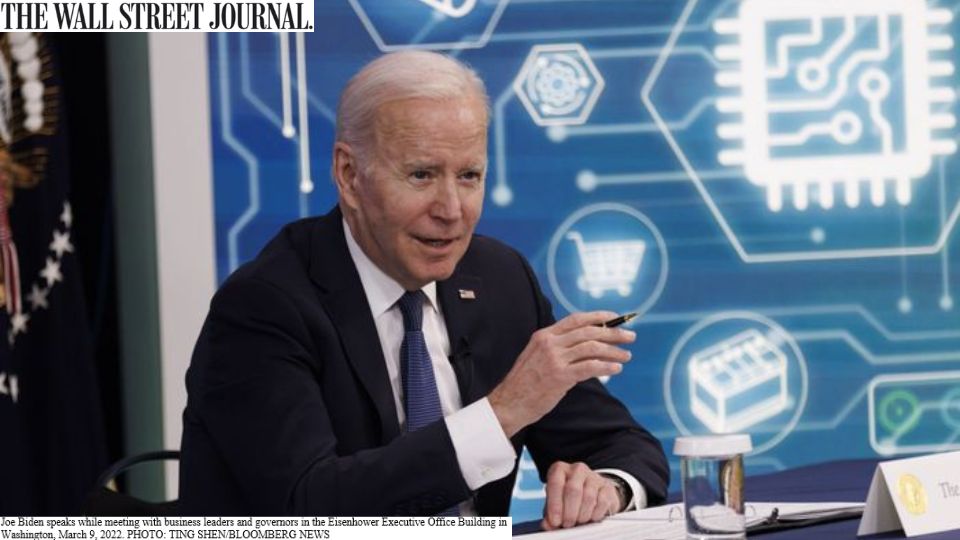
- Florida Governor Ron DeSantis has signed an anti-CBDC bill into law, banning the use of American or foreign central bank digital currency (CBDC) in the state.
- The bill is designed to protect consumers and businesses in Florida by “Expressly prohibiting the use of a federally adopted Central Bank Digital Currency as money
- DeSantis, “Big Brother’s Digital Dollar.” He said at the time that the creation of a digital dollar would grant “more power” to the government.
- “[A CBDC] provides the government with a direct view of all consumer activities,” said the Florida governor. “Any way they can get into society to exercise their agenda, they will do it. So, what the central bank digital currency is all about is surveilling Americans and controlling [the] behavior of Americans.”
- The Florida CBDC ban is scheduled to take effect on July 1, 2023.
Florida Governor Ron DeSantis has signed an anti-CBDC bill into law, banning the use of American or foreign central bank digital currency(CBDC) in the state.
During the Friday press conference following the signing, DeSantis accused President Biden's administration of wanting to “crowd out and eliminate other types of digital assets, like cryptocurrency.”
The bill is designed to protect consumers and businesses in Florida by “Expressly prohibiting the use of a federally adopted Central Bank Digital Currency as money within Florida’s Uniform Commercial Code (UCC); instituting protections against a central global currency by prohibiting any CBDC issued by a foreign reserve or foreign sanctioned central bank; and calling on likeminded states to join Florida in adopting similar prohibitions within their respective Commercial Codes to fight back against this concept nationwide.”
DeSantis first announced the bill on March 20 while standing in front of a podium that read “Big Brother’s Digital Dollar.” He said at the time that the creation of a digital dollar would grant “more power” to the government.
“[A CBDC] provides the government with a direct view of all consumer activities,” said the Florida governor. “Any way they can get into society to exercise their agenda, they will do it. So, what the central bank digital currency is all about is surveilling Americans and controlling [the] behavior of Americans.”
The presidential hopeful cited concerns over rising inflation in the U.S., increasing interest rates, and the recent pressure on banks as examples of how government policies have had a direct negative effect on U.S. consumers.
“You’re opening up a major can of worms and you’re handing a central bank huge, huge amounts of power,” he warned.
Governor DeSantis also said that “the reckless adoption of a ‘centralized digital dollar’ will stifle innovation and promote government-sanctioned surveillance.”
As opposed to decentralized cryptocurrencies like Bitcoin, CBDCs are directly controlled and issued by governments, potentially giving them the ability to see all consumer activity and limit certain purchases.
DeSantis also highlighted the effect that a CBDC would have on commercial banks, saying that it could “diminish the role of community banks and credit unions in our financial system as CBDC currency would be a direct liability of the Federal government, rather than of a chartered financial institution, shrinking market lending power.”
Other ‘like-minded states’ have already joined Florida in pushing back against the possibility of a U.S. CBDC. On May 3, North Carolina's House of Representatives voted unanimously to ban the state's agencies and institutions from accepting any CBDC payments.
The bill also bans the state from participating in any CBDC development activities, including tests and pilot programs such as Project Cedar, the New York Fed’s CBDC pilot, which recently moved from the research to the development phase.
And on March 9, South Dakota Governor Kristi Noem vetoed House Bill 1193, which aimed to amend her state’s Uniform Commercial Code to exclude digital assets like Bitcoin from the legal definition of money while creating an exception for CBDCs.
“It was sold as an update to the guidelines of the UCC, backed by all our financial institutions, our banks,” Noem said in an interview with Tucker Carlson. “As we started reading through it, we saw the section of the bill that changed the definition of currency.”
Noem said the bill would “pave the way for a government-led CBDC” while effectively banning other forms of cryptocurrency like Bitcoin. “So for me, it very clearly was a threat to our freedom,” she said.
Noem said the same language was embedded in bills working their way through more than 20 other state legislatures. “I believe it’s to pave a way for the federal government to control our currency, and thus control people,” she said. “Its should be alarming to people and it’s being sold as a UCC guidelines update.”
More than 114 governments and central banks are at some stage in the exploration of creating a CBDC, including the United States, but there appears to be a clear consensus among U.S. lawmakers about the main concerns: protecting privacy, limiting the impact on commercial banking, and ensuring fair access for all citizens.
The Florida CBDC ban is scheduled to take effect on July 1, 2023.



